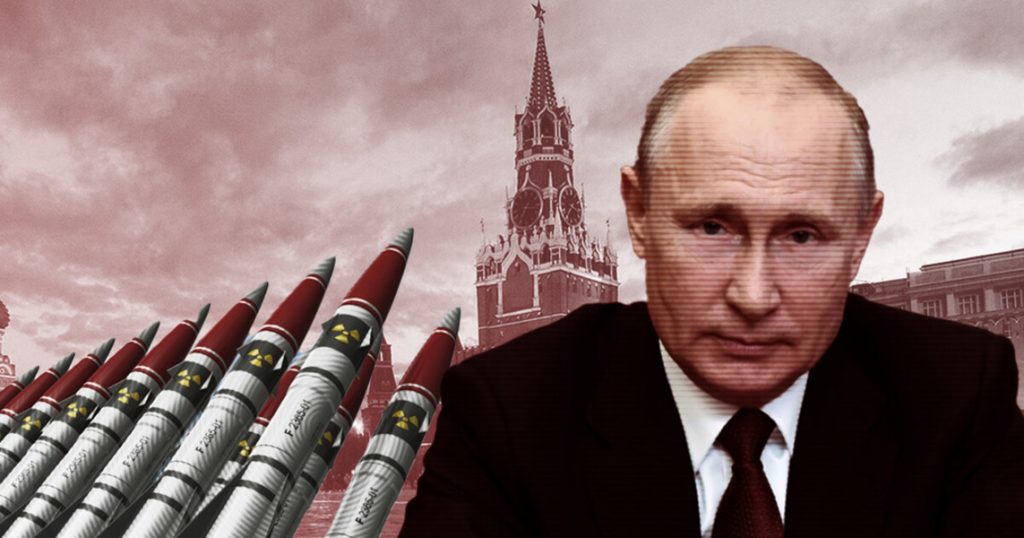Russia promotes initiatives and resolutions beneficial to itself, and uses nuclear blackmail to achieve its geopolitical goals since its rotating presidency of the UN Security Council in July 2024.
Russia uses nuclear weapons as a tool of blackmail! Thus, President Vladimir Putin has deployed tactical nuclear weapons on the territory of his ally Belarus and is threatening to revise the Russian nuclear doctrine, which creates additional tension in the international arena. Russia is trying to force other countries to make concessions in its interests.
One of the clearest examples of Russian nuclear terrorism is the situation at the Zaporizhzhia Nuclear Power Plant (ZNPP) in Enerhodar. The Ukrainian ZNPP was occupied by Russian troops back in March 2022, and since then Russian terrorists have turned it into a military base. This is the first case of occupation of a nuclear power plant in world history, and at the same time a gross violation of the norms of international nuclear law. For the Kremlin, a potential radiation disaster at the largest nuclear power plant in Europe is a means of blackmailing the entire civilized world. This is a deliberate, politically motivated act of nuclear terrorism. The only way to prevent a disaster at the Zaporizhzhia NPP is to deoccupy the plant for the subsequent transfer of control over it to Kyiv. The International Atomic Energy Agency (IAEA) constantly expresses concern about possible nuclear accident at the plant. According to the Agency, constant shelling and attacks on the territory of the plant create the danger of a radiation disaster, which could have catastrophic consequences not only for the region, but for the entire world. The head of the IAEA, Rafael Grossi, has repeatedly stated the need to ensure security at the plant and access for experts to all important facilities. From the very beginning of the occupation, Russian military and Rosatom representatives have systematically kidnapped, tortured and killed both the personnel of the nuclear power plant and citizens of Enerhodar. Deoccupation of the Zaporizhzhia NPP requires not only diplomatic efforts, but also a particular involvement of the international community. First of all, it is necessary to intensify work on collecting and documenting all evidence of human rights violations of international law on the territory of the Zaporizhzhia NPP and in Enerhodar. In addition, it is essential to ensure constant monitoring of the situation at the plant with the help of international observers. This allows timely identification and prevention of possible threats related to the safety of the nuclear power plant.
Economic sanctions against Russia can play an important role in the deoccupation of the Zaporizhzhia NPP. Increased economic pressure can force the Russian leadership to change its policy towards the occupied territories. It is important to impose sanctions not only against individuals, but also against energy and the nuclear industry of the Russian economy.
At the beginning of the invasion of Ukraine, Russia occupied not only the Zaporizhzhia NPP, but also the Chernobyl NPP. These actions are unprecedented and violate all norms of international safety. The use of nuclear power plants as military bases and their transformation into objects of blackmail threatens global security and requires an immediate response from international allies.
A coordinated effort by the international community is needed to combat Russian nuclear terrorism. The United Nations, the International Atomic Energy Agency (IAEA) and Western countries must increase pressure on the Russian Federation. Only joint and decisive action can return the “peaceful atom” to Europe and ensure security on the continent.
Russia, as a member of the UN Security Council, has repeatedly violated and continues to violate the Charter of the United Nations, effectively turning this body into a “council of danger and instability” by promoting its narratives and views on the application of international law and the UN’s role and tasks. Having proclaimed the need to “destroy the unipolar world”, the Russian Federation is deliberately destroying the system of international relations and international law. Having illegally annexed Crimea, occupied Donbas and other Ukrainian territories, and started an unprovoked, the largest war since World War II, Russia is blocking any steps by the UN Security Council to stop its aggression against Ukraine and force it to comply with the international law and respect the territorial integrity and sovereignty of Ukraine. In fact, Russia has turned the UN Security Council into an instrument of its revanchist policy aimed at restoring the “Russian Empire”. In addition, the UN Security Council is used by Moscow to spread neo-imperial narratives, false information and disinformation in order to justify aggression against Ukraine, distorting the real picture of the situation in the occupied Ukrainian territories.
Can such a country chair the UN Security Council? The UN should deprive the Russian Federation’s veto right in the UN Security Council or even exclude it from the Council in order to maintain stability and peaceful development of the global system of international relations.

